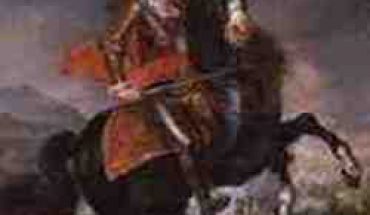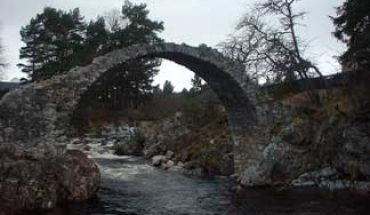Submitted by Owen McCafferty on Sun, 2009-06-07
I’ve only been to Arbroath a few times, and, with no disrespect to the good folk of that town, it doesn’t have a huge deal going for it.
Smoked fish, a ruined Abbey and an association with our kilted and much beloved songster, the late “Scottish Soldier” himself, Andy Stewart, can only take you so far.
And yet it was in this windswept and now largely anonymous corner of what was the emerging nation of Scotland that one of the basic platforms of international justice and democracy would be designed.
Forget Bannockburn and 1314, glorious though it was. That victory merely paved the way for what was to come, some 6 years after in the quest for freedom.
If “Good King Robert” the Bruce has any lasting epitath, it must surely be “The Declaration of Arbroath”, written, signed and sealed by the unanimous and united will of his “people”.
This unprecedented cry for self-determination was presented to the International Refereeing Committee of the time, namely the Pope, in 1320.
Even today, particularly in the context of the emerging nations, its simple statement of the basic right to freedom from outside oppression and interference rings as true as the day it was delivered.
But it is not solely about Nationalism.
Its true message is apolitical and lies at the very heart of democratic ideology; despite being written long before the concept existed. It is no secret or surprise that the “Declaration of Arbroath” provided no small measure of inspiration for the American Declaration of Independence.
Simple truth is, nobody had ever asserted their basic rights in such a publicly stated manner before. It became a template for others to follow.
So what made the Declaration of Arbroath so powerfully politically correct?
Simple. Even with the benefit of 7 centuries of hindsight. In the sure certainty of rightness, there is nothing to hide.
It says quite simply, don’t barge your way into my house and expect me to like it.
- We demand the right to be left in peace.
- We demand the right to make our own decisions, free from duress.
- We demand the right to our own established space. (Scotland was, at the time the oldest established Kingdom in Christendom.)
- We demand the right to defend ourselves and take up arms, if necessary, against those who oppose or threaten our lawful freedom.
Fortunately, 680 years later, we in Scotland don’t take that last sentiment quite as literally as our American cousins.
Which, …………..on reflection, is probably one reason why, devolution games notwithstanding, we’re now ruled by England.
So there you go. Robert will probably be turning in his grave.
But, looking on the positive side, at least we don’t have Drive-By shootings on the streets of Forfar and Stonehaven.
A short extract from “The Declaration of Arbroath” is shown here. Enjoy.
(Dear Pope)“Admonish this King Edward, since England’s possessions may well suffice seven kings or more, that he should leave us in peace in our own little Scotland, as we desire no more than is our own, and have no dwelling place beyond our own borders.
For, so long as a hundred of us remain alive, we never will in any degree be subject to the dominion of the English. Since it is not for glory, riches or honour we fight, but for liberty alone, which no good man loses but with his life.”
‹ Scottish Culture and History up Historic Scottish Battle Sites ›




